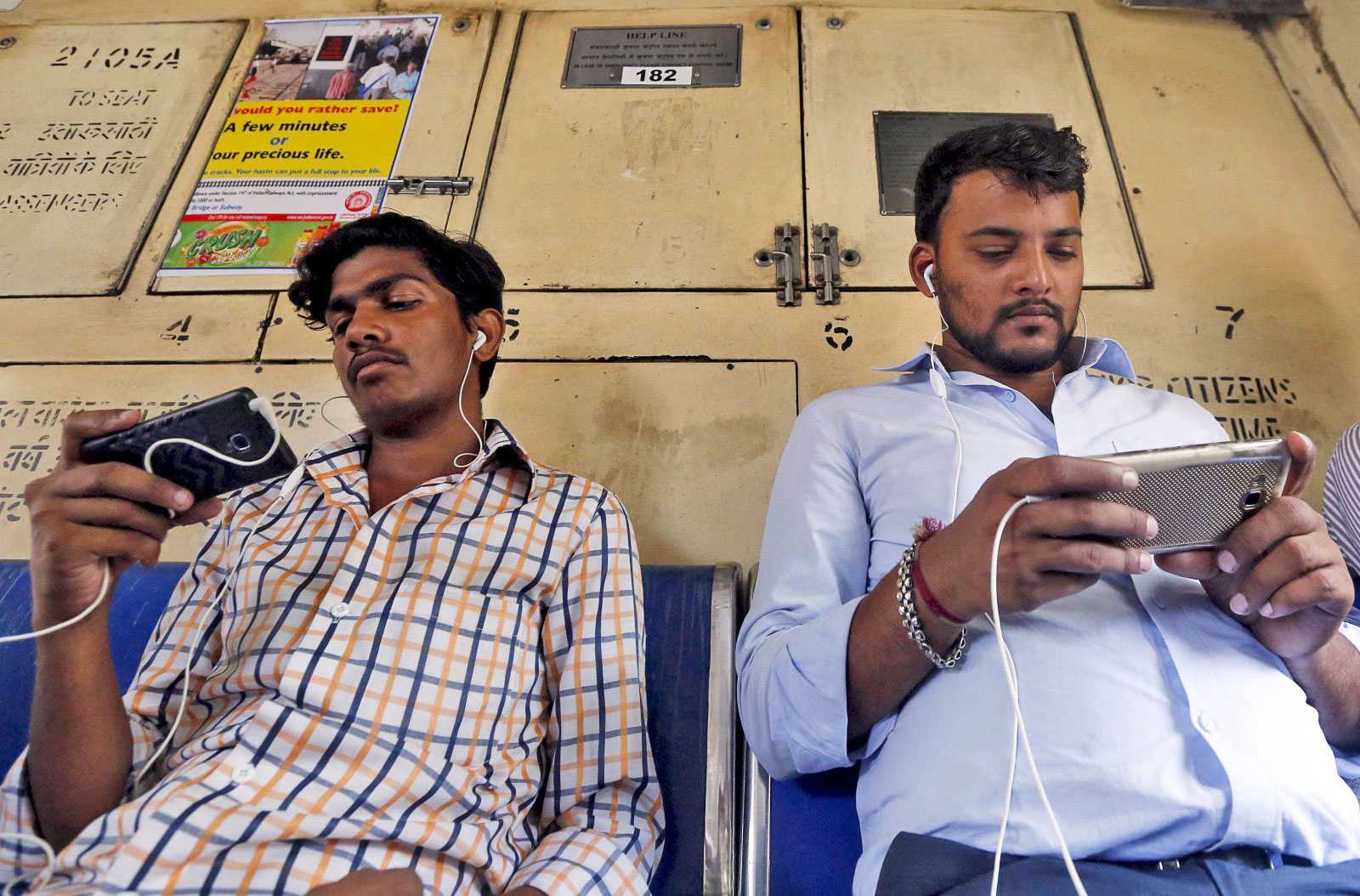Tag Archives: BhartiAirtel
Facebook begins selling low-cost WiFi in India
 Facebook's internet.org is on a mission to bring connectivity to the most remote communities on Earth. And while moonshot projects like Aquila are still in early development, the company is pushing forward with a different strategy: empowering local...
Facebook's internet.org is on a mission to bring connectivity to the most remote communities on Earth. And while moonshot projects like Aquila are still in early development, the company is pushing forward with a different strategy: empowering local...
Google will help mobile carriers run their networks better
 If you didn't think that Google was into everything before, wait until it's providing the infrastructure for your mobile network. The company has announced that it's building tools for cellular carriers to use to run their businesses. Businesses such...
If you didn't think that Google was into everything before, wait until it's providing the infrastructure for your mobile network. The company has announced that it's building tools for cellular carriers to use to run their businesses. Businesses such...
Live from the ‘Connecting the Next Billions’ keynote with Stephen Elop, Gary Kovacs and more
Mozilla's Gary Kovacs has been harping on this idea of connecting the next billion or so people to the internet all week -- it's one of the driving philosophies behind Firefox OS. Nokia is looking to bring down the cost of entry to the mobile web with the 105 and 301. Then there are operations like Qtel and Bharti Airtel, that provide cellular service across the developing world and in emerging markets. These companies are all looking to put the democratizing power of the web in the pockets of people across the globe, and they're all here at Mobile World Congress 2013 to discuss just how they plan to do that and why it's so important. To find out what these CEOs, including Stephen Elop, Dr. Nasser Marafih (Qtel) and Sunil Mittal (Bharti Airtel) have to say, check back in at the time below.
Filed under: Nokia
Indian government tells carriers to end 3G roaming pacts, doesn’t stop to explain why
For those of us on the outside, India's telecommunications setup can seem a little murky. While the country has 900 million mobile connections, for example, every 2G license issued after January 2008 were cancelled in February. Now, authorities are asking 3G carriers to suspend the practice of allowing customers to switch between different operators as they roam across the country's 22 wireless regions -- with no explanation as to why. Roaming was originally outlawed back in December, but a number of networks appealed -- a move which only seems to have postponed the final ruling until today.
Update: Plenty of our commenters have shared their knowledge to help further explain this situation. No network other than BSNL purchased a nationwide 3G license during the auction. The other carriers each bought smaller (and cheaper) access -- but teamed up to offer a virtual national-network. They then started to sell services in regions (or "circles") that they had no license for, causing the Government to try to clamp down on the process by outlawing the agreements.
Filed under: Cellphones, Wireless, Mobile
Indian government tells carriers to end 3G roaming pacts, doesn't stop to explain why originally appeared on Engadget on Fri, 28 Sep 2012 14:40:00 EDT. Please see our terms for use of feeds.
Permalink | Reuters | Email this | Comments
Reuters | Email this | Comments Bharti Airtel first to deploy LTE in India, launching in Kolkata this month
 It's beginning on a very limited basis, but Bharti Airtel is achieving a rather significant milestone in India: it's set to become the very first operator to deploy LTE service within the country. Having won spectrum for four markets nearly two years ago, the company will debut its ZTE-built 2300MHz next-gen network in Kolkata (Calcutta). There's no word on when the coverage will expand to the other three circles -- the operator's announced that Nokia Siemens will be heading up the effort in Maharashtra later this year, followed by Punjab and Karnataka -- but we imagine the initial deployment will be a good test to make sure Bharti's network is up to the task first.
It's beginning on a very limited basis, but Bharti Airtel is achieving a rather significant milestone in India: it's set to become the very first operator to deploy LTE service within the country. Having won spectrum for four markets nearly two years ago, the company will debut its ZTE-built 2300MHz next-gen network in Kolkata (Calcutta). There's no word on when the coverage will expand to the other three circles -- the operator's announced that Nokia Siemens will be heading up the effort in Maharashtra later this year, followed by Punjab and Karnataka -- but we imagine the initial deployment will be a good test to make sure Bharti's network is up to the task first.[Thanks, Shweta]
Bharti Airtel first to deploy LTE in India, launching in Kolkata this month originally appeared on Engadget on Wed, 04 Apr 2012 11:20:00 EDT. Please see our terms for use of feeds.
Permalink EveryoneDigital |
EveryoneDigital |  Telecom Lead, Indian Express | Email this | Comments
Telecom Lead, Indian Express | Email this | Comments 
